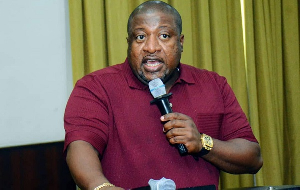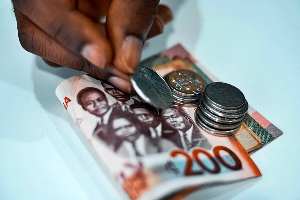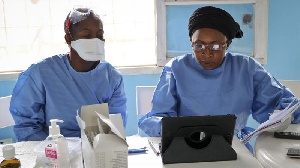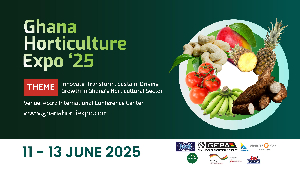In a country where requisite standards in all spheres of life are being compromised, it is obvious that the resultant consequences could be detrimental to the nation, these can be most liken in the area of building infrastructure, fruits exports, electrical appliances, drugs and their related herbal medicines, sachet water, etc.
At the importers forum in Tamale some time back, the former Deputy Northern Regional Minister, Honourable San Nasamu Asabigi, bemoaned that his great worry was on how the inferior or sub-standard goods get flooded into the Ghanaian markets and the rippled negative effects associated with them. He added that the regulatory bodies who are mandated to overseeing these checks should step up in their quest in biting harder, in order to bring sanity into the system.
The Chief Executive Officer (CEO) of Ghana Standard Authority, Dr. George Ben Crentsil at the said occasion, emphasised that his outfit has the responsibility to prohibit the importation of harmful products in Ghana, unless they have been certified and complies with standards set up by the board. Dr. Crentsil reminded Ghanaians of some legislation which govern the importation of goods, these according to him are: 1. Import and Export (prohibited goods) No.2 regulation 1994 L.I. 1586, prohibiting the importation of used under-wears, handkerchiefs, mattresses and sanitary wares. 2. Export and Import (prohibition of importation of used LPG cylinder) instrument, 2001 L.I. 1693. 3. Energy efficiency standards and labelling (non-ducted Air conditioners and self-ballasted Fluorescent lumps) 4. Ghana Standard Board (food and drugs boards and other goods which also falls under the category of general labelling rule), 1992 L.I. 1541 He stressed that the above legislation, set out specific requirements expected of imported goods in Ghana. Dr. Crentsil, urged players in the import sector to critically tackle the problem with the aim of promoting safe and quality products that will enhance a good regulatory practice and together play a collaboratory role in the protection of consumers and the general environment. He further appealed to the government to elongate their mandate in checking standards of the following materials to the level of technical regulations, these he catalogued as, the standards for cements, standard for iron rods, standards for electrical cables, sockets, plugs, extension sockets, circuit breakers and voltage regulations, saying that the rampant developments of fire outrages in some buildings and the increasingly collapsing of certain edifices in the country, without standing the test of time, give course for their standards to be checked to ensure the safety of the consuming publics. The question which one must ask is that until date, have we as country ensure due diligence on the above mention hardware’s such that all these reoccurring phenomenon, like the recent melcom disaster issue and lately the collapsed of a church building both in Accra and the market infernos in some part of the country which the nation is saddle with be avoided? However, the issue of substandard goods, inundating in the Ghanaian markets should also be tackle in a preventive approach, instead of combative approach by the authorities responsible if we really mean business to tackle the menace in Ghana, because If as a nation we negligently and voluntarily allow goods in the market, certainly, their prices would be reduced and unsuspecting victims would also patronise them, For that matter, my appeal to the government is that we should designate regulatory bodies on the outside shores of Ghana to critically examine goods which are to be imported into the country, to ascertain if they are in conformity with the laid down standards, than allowing the influx of inferior goods into the market before combating the situation. At the said function in Tamale, a resource person said the system of ensuring that sources of item of trade are examine from their destination points, to ascertain as to whether the items are of good quality, authenticity and has the real value of the goods is also in operation. Again, if all these measures have not yielded any valuable dividend for the nation, then there is a critical call for another re-evaluation in our bide to ensure standards are adhered to, as far as imports and exports business is concern. The Minister of roads and Highways, Mr Amin Amidu Sulemana, recently at a function in Accra, underscored the need for the construction industry to be formally regulated; explaining that lack of enforcement of its regulations for the industry had led to shoddy work by players in the sector. The Minister of Water Resources, Works and Housing, Alhaji Collins Dauda, at the similar function share the views of his colleague minister, stressing that even though there were enough rules to sanitise the industry, the lack of its enforcement poses a great challenge and thus called on all stakeholders to help at ensuring that this challenge was fully addressed. According to Daily graphic edition Tuesday July 2nd, 2012, Fruit exports from Ghana were banned from entering major international markets such as the US and the EU due to the negative impact of fruit flies. Twenty- seven other African countries are also said to be affected. The mango industry in Ghana is said to be one of the most affected by the ban. In a related issue the Daily Graphic edition of Wednesday, June 6, 2012 it was also reported by Interpol estimation that, 30 percent of imported drugs into Africa are fake, the question then is what are the authorities doing in the continent, to fight the phenomenon head-on, given the enormity of danger associated by humans in taken harmful or inferior drugs? LAST BUT NOT THE LEAST; It was realized that sensitization was the purpose of the forum’s deliberations as elaborated earlier, in my humble opinion did not as it were, gone down well to the consuming public, apparently, how many people read the labels of products before buying them. However, I would seize this opportunity to entreat the Ghana Standard Board, to partner with the Information Services Department (ISD); since it has the wherewithal to carry out awareness creation in all the Ghanaian languages, these would undoubtedly save million lives and properties to ensure value for money as a nation.
By Alhassan Abubakar Sadik, ISD Reporter in Tamale. Email-sadika64@yahoo.com .
Opinions of Wednesday, 24 July 2013
Columnist: Sadik, Alhassan Abubakar














